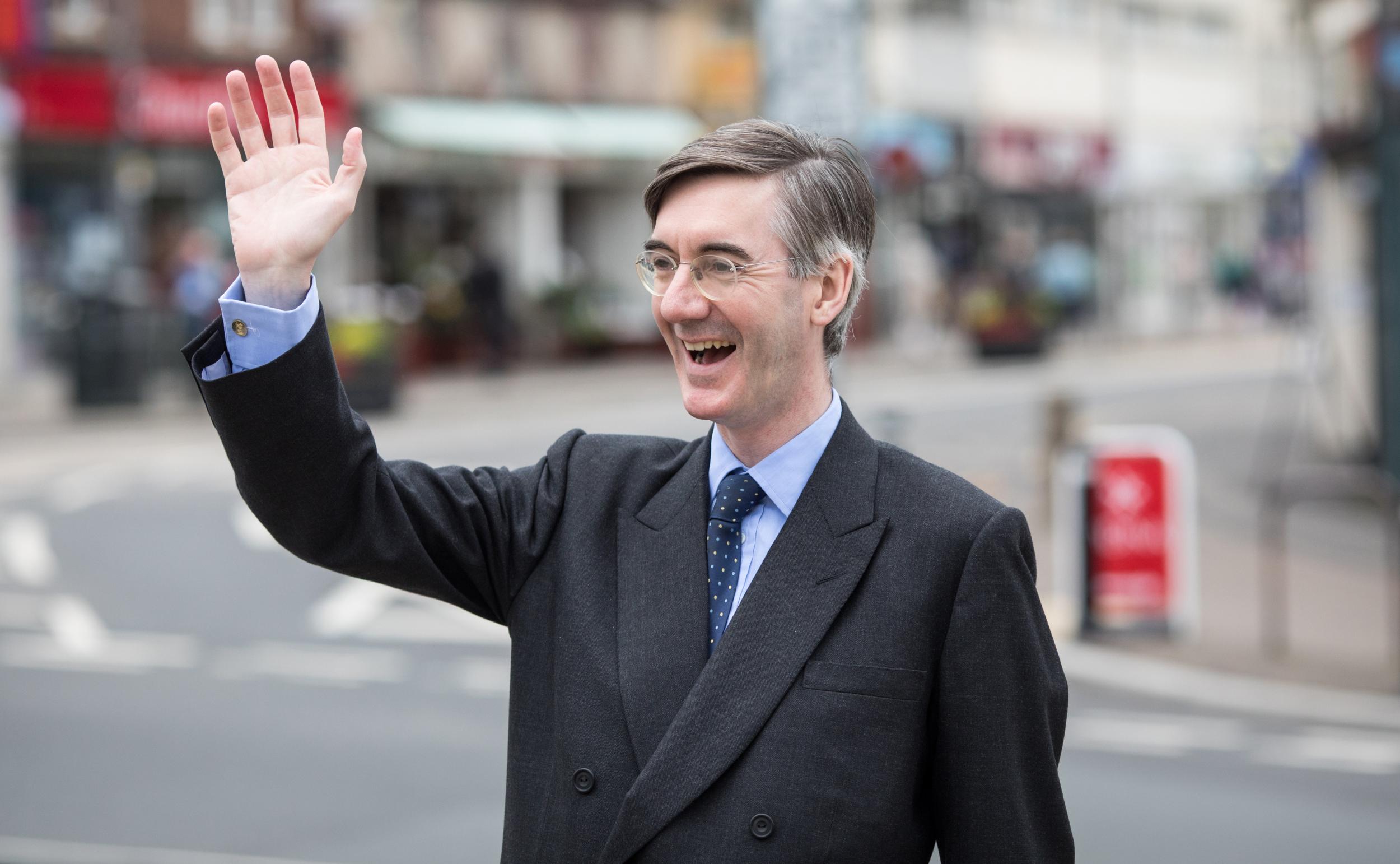The Independent's journalism is supported by our readers. When you purchase through links on our site, we may earn commission.
Don't swallow Tory MPs' lies – most Leave-voting Labour supporters say they don't want a hard Brexit
Rhetoric about us becoming ‘rule-takers rather than rule-makers’ is not accurate either: the Norwegian ministry of foreign affairs has cleared that up in a paper about its own relationship with the EU


This week is a big one in Westminster, with important votes on the EU (Withdrawal) Bill.
There are a number of House of Lords amendments to the bill, which seek to mitigate the negative impacts of Brexit and are being considered by the House of Commons. Lords amendments to be debated on Tuesday include those to restrict the government’s use of so-called Henry VIII powers; to ensure the Good Friday Agreement in Northern Ireland is respected; to remove the fixed exit date of 29 March 2019; and, most importantly, to further ensure parliament has a “meaningful” vote on the Brexit deal this autumn.
On Wednesday we will deal with vital amendments that seek to ensure the UK continues to participate in the EU customs union and the European Economic Area (EEA), among other things.
In this “backbenchers’ parliament” – as it has been dubbed by my colleague Hilary Benn, chair of the Brexit Select Committee – much of the agenda is being driven, as the name implies, on the back benches.
On the hard right, the Tory European Research Group (ERG) – chaired by Jacob Rees-Mogg and supported in cabinet by the likes of Boris Johnson, Michael Gove and Liam Fox – is driving demands for an extreme break in our relationship with the EU. A very small number of Labour MPs subscribe to this view too.
On the other side, a cross-party coalition is fighting against hard Brexit (or Brexit altogether!) under the All-Party Parliamentary Group on EU Relations, a group which I co-chair with Anna Soubry. Its vice chairs include Green Party co-leader Caroline Lucas, Liberal Democrat deputy leader Jo Swinson, SNP Brexit spokesman Stephen Gethins and Plaid Cymru’s Jonathan Edwards. Leading figures in the Conservative Group for Europe like Ken Clarke and Dominic Grieve, and in the Labour Campaign for the Single Market like Alison McGovern and Ian Murray, are all supporters and part of the APPG too.
Following her disastrous general election campaign last year, when the prime minister put the ERG’s vision of Brexit at the heart of the Tory campaign and consequently lost her majority, her approach to Brexit has been driven by what is necessary to keep her in No 10 as Conservative leader and PM.
May clearly believes that the ERG members are much more likely than the Tory sensibles to submit those 48 letters from MPs necessary to demand a leadership contest if she turns her back on the hard Brexit they want. This is why, in spite of there being majority support in the Commons for the UK to stay in the customs union and EEA, she will not agree to it.
Unless and until sensible Tory MPs consistently exercise an opposite pressure, the ERG view of the world will win out. They can do this in a less aggressive manner than the ERG, not by threatening to submit 48 letters of their own but by sticking to their guns and voting for the 15 cross-party Lords amendments voted for by former Conservative ministers in the Lords such as Chris Patten, Michael Heseltine, Ros Altmann, Sandip Verma and others. As Ken Clarke put it yesterday, sensible Tories need “to rescue the prime minister from this terrible treatment she is getting from key members of her cabinet”.
If a majority of MPs vote for the Lords amendments softening Brexit, it will vividly illustrate that the ERG’s vision of EU withdrawal is impossible because the Commons won’t support it. That will strengthen Theresa May’s hand in forcing the ERG to face reality.
A number of factors play on the minds of Conservative MPs, not least aggressive local associations undergoing increasing entryism from former Ukip members, vile abuse and aggression stoked by some of the Brexit-supporting media, and death threats. Last week a Ukip supporter was given a nine-week suspended jail term for sending threatening emails to Dominic Grieve, Anna Soubry, Nicky Morgan and Heidi Allen, in addition to racist material to Labour MPs David Lammy and Eleanor Smith. This is the tip of the iceberg.
We know there are MPs this week who will vote against their instincts and what they believe to be right for the country because of the intimidation and threats they face. These threats, as parliament considers the biggest issue facing us since the Second World War, are a real and present danger to our democracy.
Ironically enough, the Brexiteer right will demand party loyalty from their fellow MPs this week when they are serial rebels themselves. Former Tory leader Iain Duncan Smith – who was urging Tory MPs to vote with the whip yesterday – has himself rebelled 70 times under four Conservative leaders. Rees-Mogg has rebelled 80 times and David Davis, the Brexit secretary, has rebelled 90 times.
Meanwhile, Boris told a gathering of Tory activists last week that Donald Trump would do a better job than their current leader in negotiating Brexit. These people are in no position to lecture.
On the Labour side, I’m delighted our front bench is supporting almost all the Lords amendments. There is understandable frustration that no Tory MP will support any opposition frontbench-initiated amendments to this bill which is why it makes sense to back the cross-party ones sent back to the Commons by the Lords.
The one tricky area has been whether Labour should support the Lords amendment seeking to ensure the UK continues to participate in the single market through the EEA like Norway, Iceland and Lichtenstein. There has been no hiding it: while a majority of the Parliamentary Labour Party support the EEA in principle, a minority are still to be convinced beyond the usual Labour Leavers. Their concerns shouldn’t be dismissed but engaged with, as I have sought to do since the 2016 referendum.
The EEA is an imperfect solution. The perfect solution would be not to leave the EU at all – which is my position. But, short of that, being in the EEA does enable non-EU countries to enjoy the economic benefits of EU membership to the fullest extent outside of the EU and to continue to be part of its framework of cross-border rules protecting employee rights, consumers and the environment. This is the least worst option in the event of Brexit.
Some Labour MPs object to the EEA because it requires its member states to continue free movement. However, as the former Labour prime minister Gordon Brown set out last week, you can restrict the way the principle of free movement operates to better manage EU migration. He put forward a six-point package of reforms, including preventing the undercutting of wages, all of which can be implemented now, while we are part of the EEA by dint of our EU membership.
Interestingly, new polling conducted by Opinium shows Labour voters favour staying in the single market after Brexit by a ratio of almost three to one. A clear majority of Labour voters in every single region of the country, including those who voted Leave, support such a relationship with the EU if Brexit happens.
This is perhaps unsurprising, given the government’s economic impact assessments which have forecast that Brexit-voting regions will be hit the hardest if we leave the single market.
Others say that if we adopted the EEA, we would go from being “rule-makers to rule-takers” – in other words, we’d have rules imposed on us after Brexit by the EU without any control over what those rules actually are.
The truth is a little different: EEA members are rule-shapers. The Norwegian ministry of foreign affairs has helpfully produced a paper setting out in detail how they shape the rules of the EEA. Norway sits on the committees that draw up the EEA rules and they observe that “it is easier to influence the substance of a proposal when it is being developed by the European Commission than when it has already become the subject of negotiations in the council of the EU and the European parliament”.
Whatever happens this week, MPs should do what in their judgement is in the best interests of their constituents and the country. We will never be forgiven by the younger generations – who will have to live with the consequences of whatever happens for longer than anyone else – if we put party or personal interests before what is best for our nation.
Is ‘Love Island’ feminist or fair?
I make no bones about being an addict of the TV show Love Island, which returned to our screens last week. It is gripping for all kinds of reasons I shan’t go into and it’s great TV after a long day at work when all you want to do is switch off and chill out.
I confessed about being fan to a female friend of mine over the weekend – she told me she refuses to watch it as she believes it promotes all the worst stereotypes of women. You could argue that it doesn’t do much for certain stereotypes of men either.
Ultimately, however, it seems to me that despite all the hype around the way people look on the show, the couple who win can’t do so on looks alone. If you don’t have a personality your fellow housemates warm to, surviving a recoupling – where you get chucked out if no one want to couple up with you – is a much harder task. If, notwithstanding what I say, your looks do carry you through the recouplings to the final stages, the public is likely to vote out an uninteresting or unkind person eventually.
It’s brutal – but is it fair? Who knows? But I’m going to keep watching, 100 per cent!
Chuka Umunna is the Labour MP for Streatham

Join our commenting forum
Join thought-provoking conversations, follow other Independent readers and see their replies